
SAN FRANCISCO – One recent, drizzly afternoon, a standing-room-only crowd squeezed into Manny’s, a restaurant and meeting space frequented by politicians courting voters. Rep. Katie Porter sat on a softly lit stage in front of a brightly colored painting celebrating local housing advocates.
“Where’s the whiteboard?” someone in the audience called out.
Porter hadn’t brought her signature prop with her, but when the event got going, she and podcaster Kara Swisher discussed her use of it in congressional hearings to grill corporate executives about employee wages and the cost of drugs, a schtick that earned her a devoted following on social media. Then they went on to discuss other topics of concern to progressive Democrats, including the government rescue of Silicon Valley Bank and the influence of money in politics.
When the conversation turned to Porter’s U.S. Senate campaign, the reason Porter had come to Manny’s in the first place, Swisher tried to place Porter in a “lane.”
Was she running in the mold of Bernie Sanders or Elizabeth Warren? Or, after Porter pointed to her electoral success in California’s ancestrally conservative Orange County, did she “feel that you can reach out more towards the center” than her opponents?
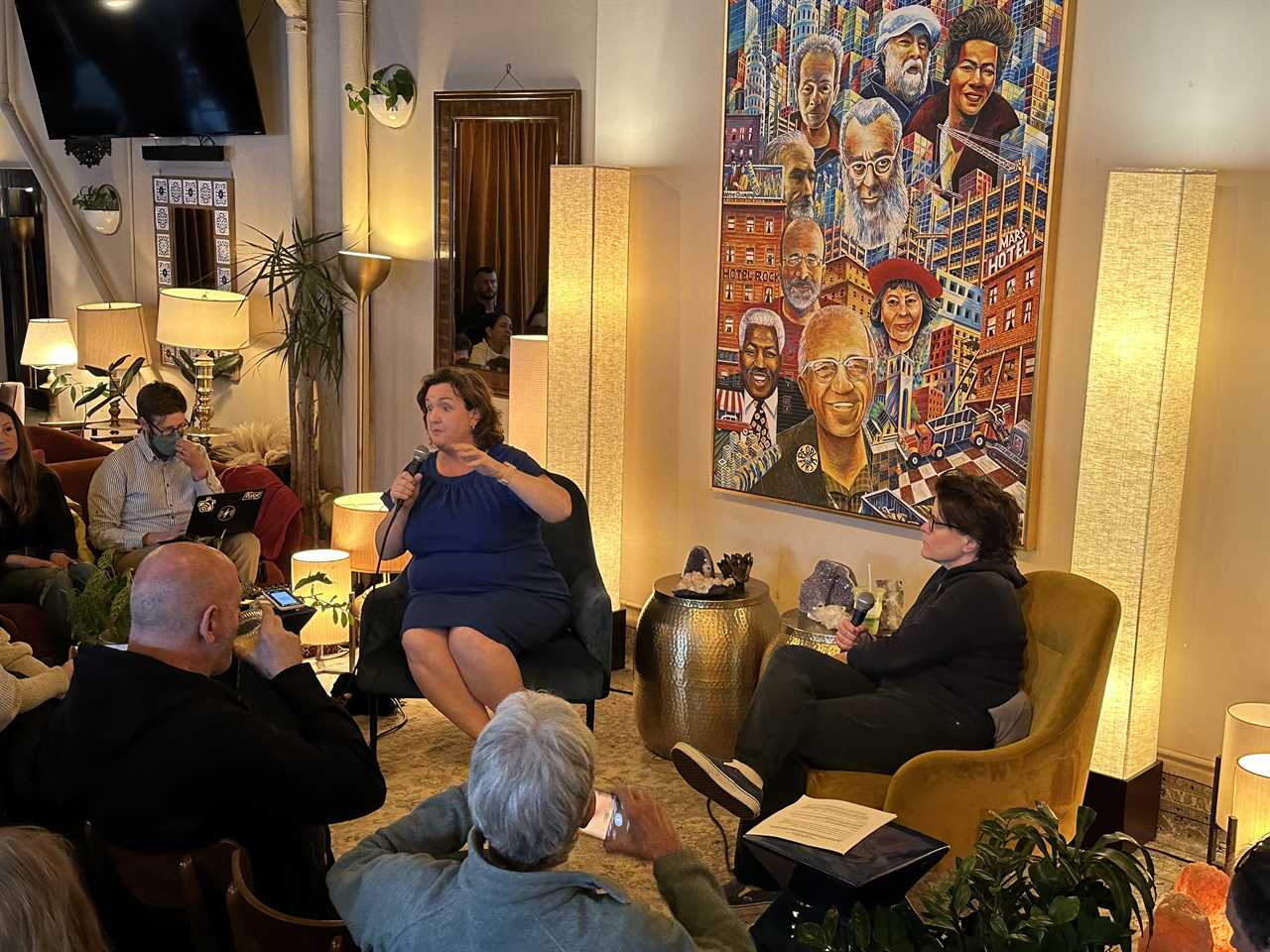
“It’s not about a label,” Porter replied. “It’s about being able to talk to people about who you fight for … I think the label’s actually part of the problem.”
Scrunched into the audience beside a table full of mimosas at the back of the room, I wondered if Porter, a progressive fundraising juggernaut, former deputy chair of the Congressional Progressive Caucus and former law student of Warren, the progressive giant and Massachusetts senator, felt that way about her own, “progressive” label, too.
As a state, California has become almost a caricature of the left’s war not only on Republicans, but on centrism in the Democratic Party. Progressive Democrats have been waiting for years for the state’s senior, centrist senator, Dianne Feinstein, to retire – so much so that the state party in 2018 had declined to endorse her reelection bid. Now that Feinstein has finally announced her retirement, the state represents an enormous opportunity for progressives to add to their still-small ranks in Congress, potentially for a generation or more.
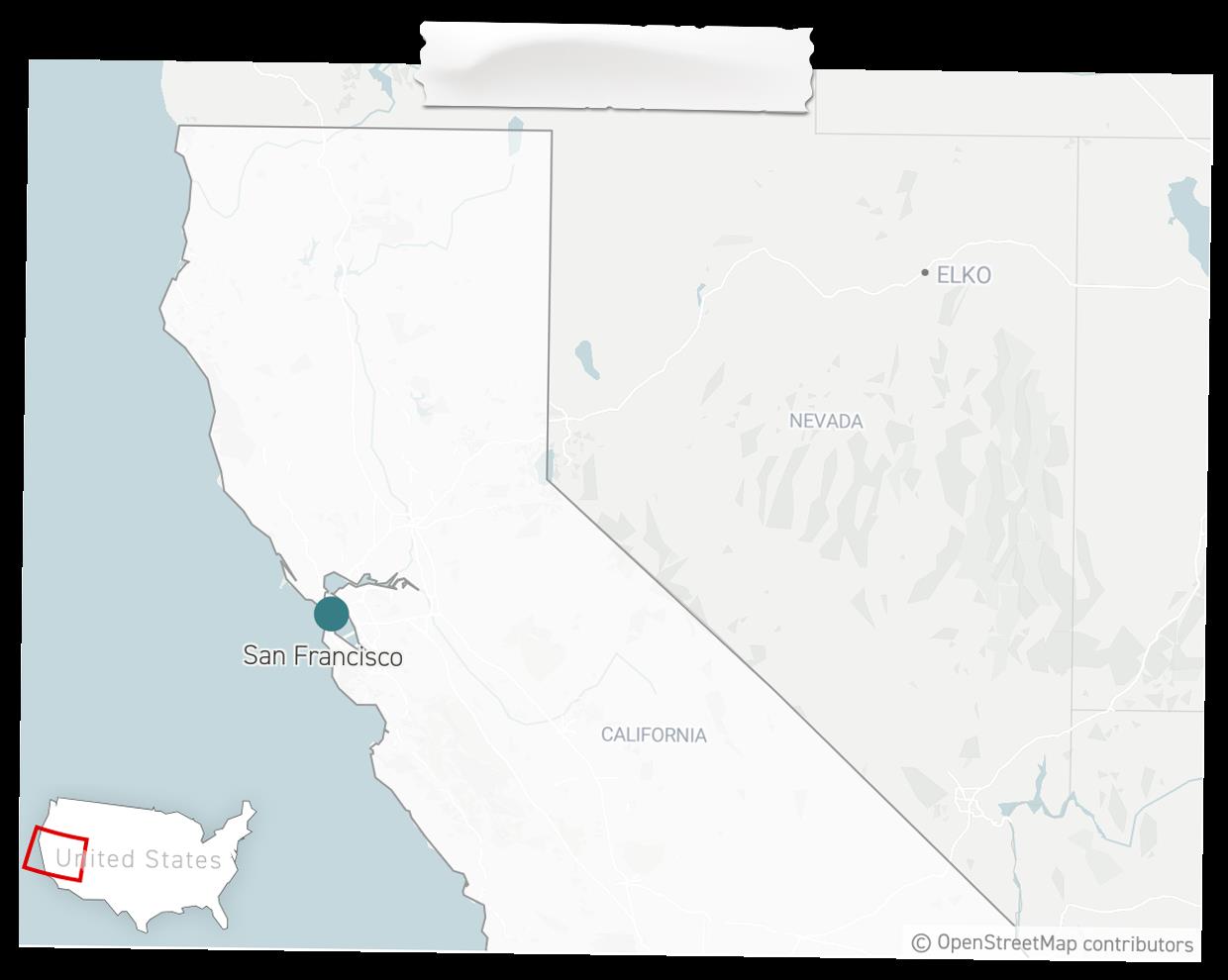
California “is a beachhead for the progressive movement,” Joseph Geevarghese, executive director of the Bernie Sanders-aligned advocacy group Our Revolution, told me. In a state that is such a “major player,” he added, the next senator should carry “a powerful progressive voice.”
But in the Senate primary, the earliest stages of the race have laid bare a more existential question for the progressive movement — less a matter of left versus center, as it was in the 2020 presidential primary, but a skirmish over who even qualifies as a progressive, and how salient that designation still is.
As a whole, the party has shifted further to the left than ever. Some traditionally progressive ideas — including a $15 minimum wage and tenets of the Green New Deal — are now mainstream. The proportion of Democrats who identify as “liberal,” as opposed to “moderate” or “conservative,” according to Gallup, now exceeds 50 percent — an all-time high.

“That’s the real dilemma or question mark for those of us in the progressive movement,” said Mark Longabaugh, an ad maker who worked on Sanders’ 2016 campaign. “Yeah, we’ve had a huge impact on the party’s positioning on policy issues, which is ultimately what we all care about. But at the same time, clearly, liberals, outside of a handful of recent victories, still don’t have the upper hand inside the party. Nor have we seized the big victories that it would take to implement those policies in some ways.”
If the 2020 presidential election was a setback for progressives, with Joe Biden defeating the likes of Sanders and Warren in the Democratic primary, three years later the movement may be suffering from something else entirely – the sheer number of Democrats claiming to represent the brand.
“Progressive,” said Lily Geismer, a history professor at California’s Claremont McKenna College who studies liberalism and the Democratic Party, has become a “catch-all,” used so heavily that in some ways “that term has lost its meaning.”
Off stage at Manny’s, behind a curtain in a closet-like room just big enough for two people to stand, Porter tried to answer my question. She told me that while she identifies as a progressive, most voters “don’t identify that way. Within the party, yes, but that’s not the electorate. So, you’re not going to connect with the electorate by saying, ‘I’m this.’”
Independents, she said, are a rapidly growing segment of the electorate for a reason. “Democrat and Republican are way better-defined terms than progressive or moderate or centrist or liberal or whatever these other terms are, and even those terms are kind of losing some of their purchase for people.” What’s they’re looking at, she added, is “what people are voting on, in a way that I think makes the label sometimes less important to people than what you’re doing.”
She told me, “I think these labels are not how people find their way to a candidate.”
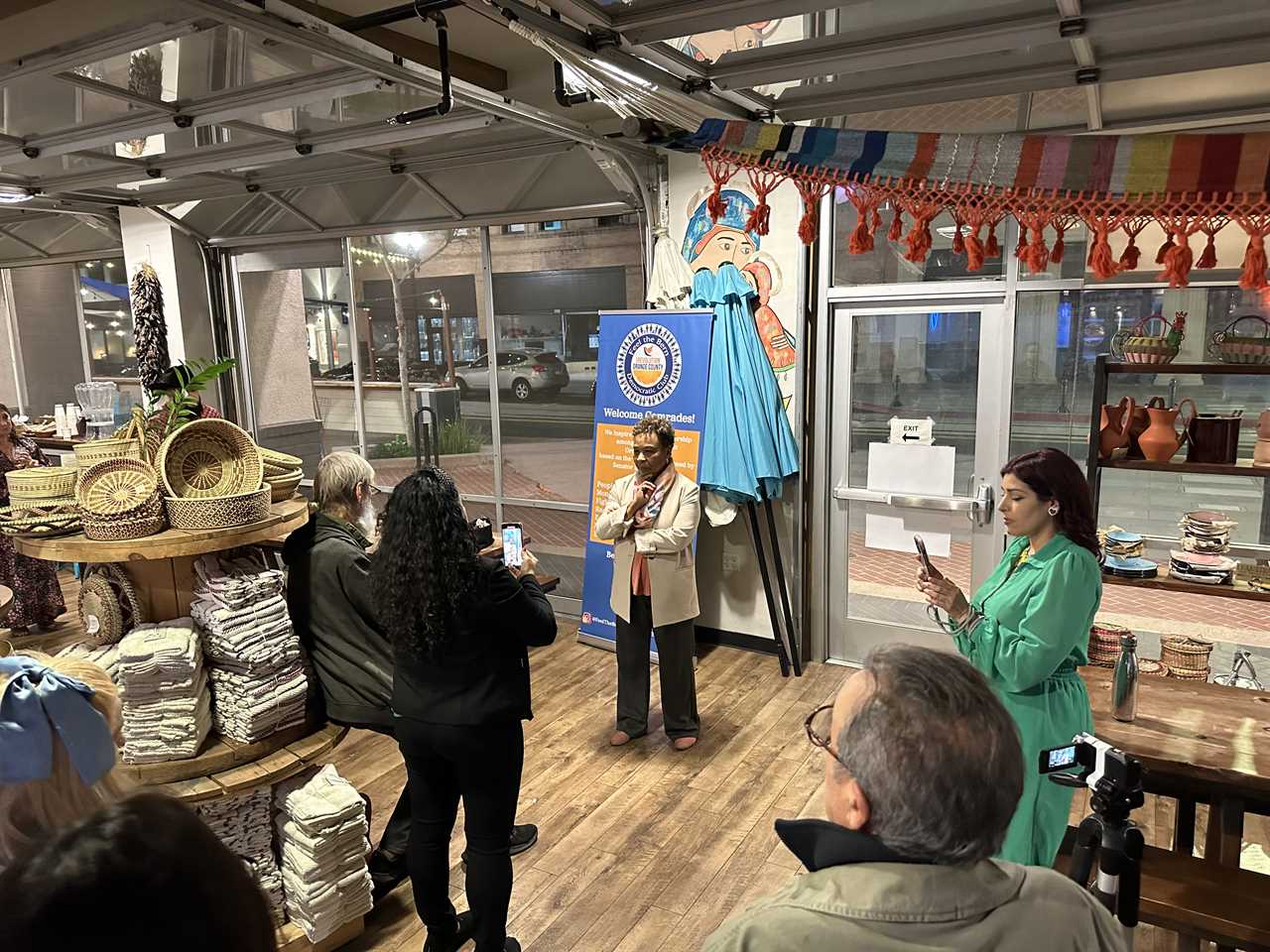
If Porter is right about how voters feel about terms like “progressive,” you wouldn’t know it from the way the California Senate race is unfolding.
One of Porter’s top rivals, Rep. Adam Schiff, a former prosecutor and former member of the centrist Blue Dog Coalition, withdrew his application to join the Congressional Progressive Caucus last month, after progressives raised question about its timing and his credentials. Schiff now supports such progressive policies as the Green New Deal and Medicare for All, and he has said, “I very much view myself as a progressive.” But next to Porter and the other main Democrat in the race, Rep. Barbara Lee, a progressive icon who cast the lone vote against the war in Afghanistan, Schiff might as well be Biden.
I went to see Lee in action at a meet-and-greet in Orange County a few weeks ago and met a progressive activist named Mary Carter who told me she’d “go anywhere for Barbara Lee.” When Lee arrived and sat down at the other end of a table from her, Carter said to her, “I love you,” to which Lee responded, “Love you back.”
Still, Carter told me she plans to vote for Porter, who is 49, instead of Lee, who is 76, because of “generational” concerns: “I’d like to have this seat for a few years.”
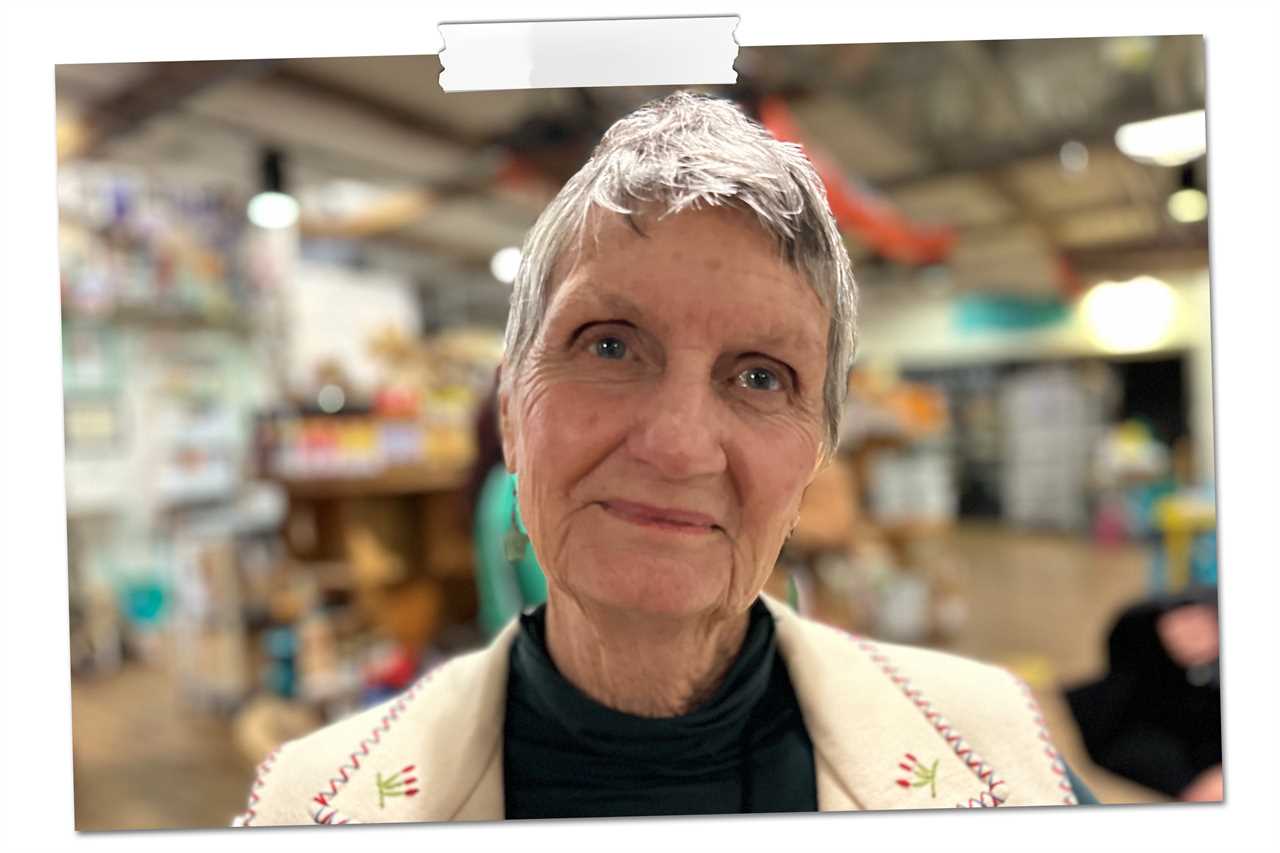
When I asked Carter about Schiff, her reaction was something else entirely. She laughed and said, “Fuck.” And then she showed me her phone, where she keeps a list of his past corporate donors. (Schiff’s campaign has said he will not take donations for this campaign from corporate PACs, though he has in the past.) Another activist at Lee’s event said Schiff should be forced to wear a “suit like a NASCAR driver” with company logos printed on it.
Amar Shergill, chair of the California Democratic Party’s progressive caucus, told me that while Schiff “has been great on some issues … he routinely arrives late.”
“There’s a huge difference between being an advocate for progressive issues,” he said, “and being the last vote on a progressive issue.”

This opinion of Schiff isn’t unusual among progressive activists. When we spoke recently, Geevarghese shared with me the results of an internal, late-February survey of about 5,000 Our Revolution members in California. Porter and Lee, who was endorsed recently by progressive Rep. Ro Khanna, did about equally well, drawing 45 percent and 44 percent support, respectively. Schiff, among the Our Revolution membership, was running more than 25 percentage points behind.
It was only a survey of activists. But among them, the term “progressive” still carries significant weight, which was clear at Lee’s event in Orange County and in her campaign’s announcement that Khanna was supporting her: Khanna, a co-chair of Sanders’ 2020 campaign, called Lee “the progressive leader Californians need right now,” while highlighting the lack of representation of Black women like Lee in the Senate.
Lee, in turn, promised “to always stand up for our progressive values.”
For progressives, Lee told me when we spoke on the phone, “the stakes are high.”
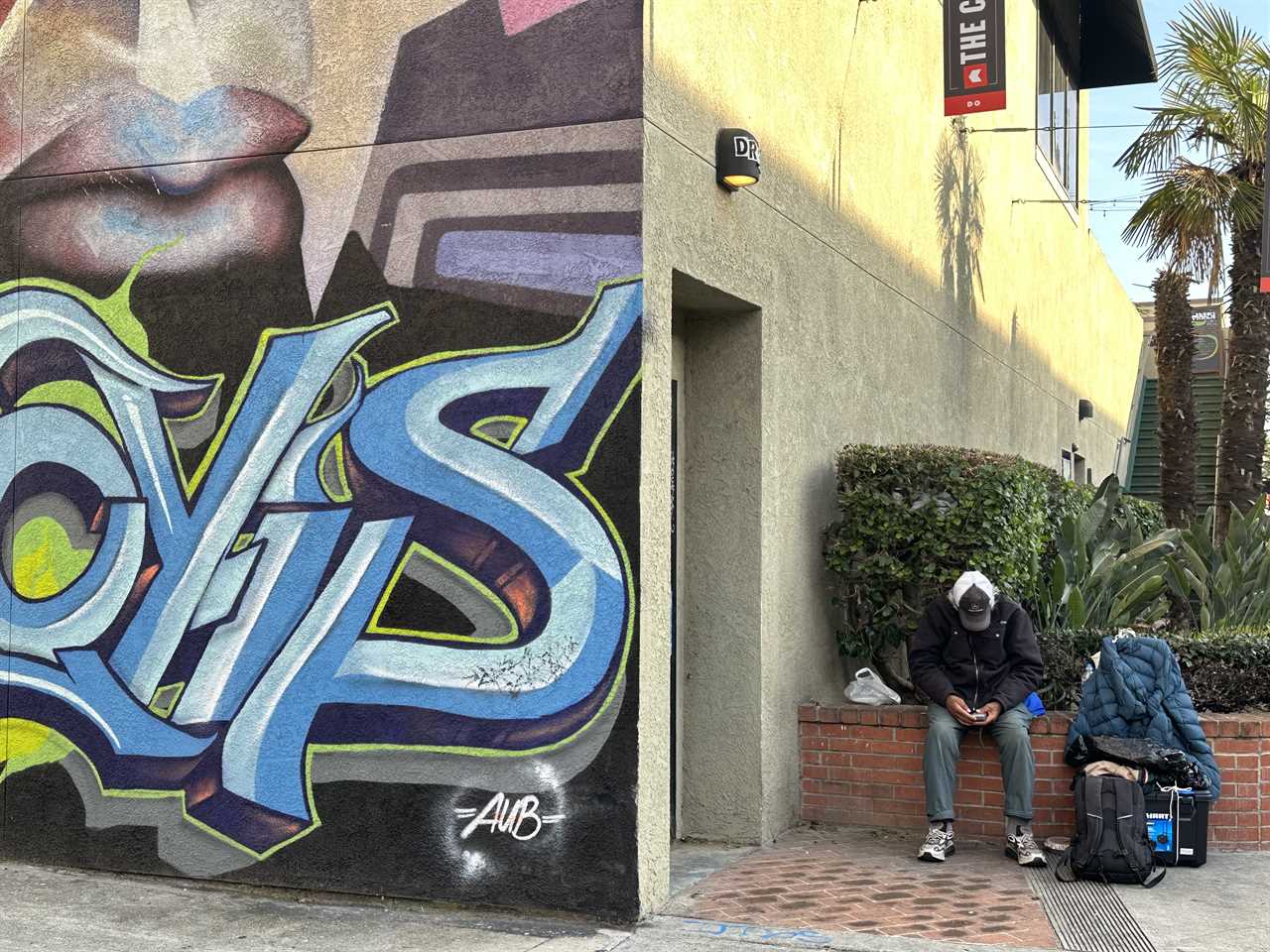
“When you look at what progressives stand for — universal affordable healthcare for all, decent housing, making sure poverty is eliminated, fighting for food security, making sure we fight to protect our democracy,” she said, “not only are these progressive values, these are values that most Americans embrace.”
In heavily Democratic California’s top-two primary, it’s highly likely that, barring an entry from a credible Republican, two Democrats will advance to a general election runoff — likely between Schiff and either Porter or Lee. Schiff has been endorsed by former House Speaker Nancy Pelosi and is widely expected to win Feinstein’s backing.

Before Lee spoke in Orange County, Richard Green, a former first vice chair of the Democrats of Greater Irvine, described the race as “a huge opportunity for progressives,” while Jenny Lynn, chair of the progressive group Feel the Bern OC, cast the race as one against “the establishment in California,” which she said “is fighting tooth-and-nail to make sure we don’t exist.”
“California and New York, they hold it down when it comes to progressive, real change,” she told me. “I feel that because California is such a powerful and large state, we should be setting an example, and we should be the ones leading the way.”
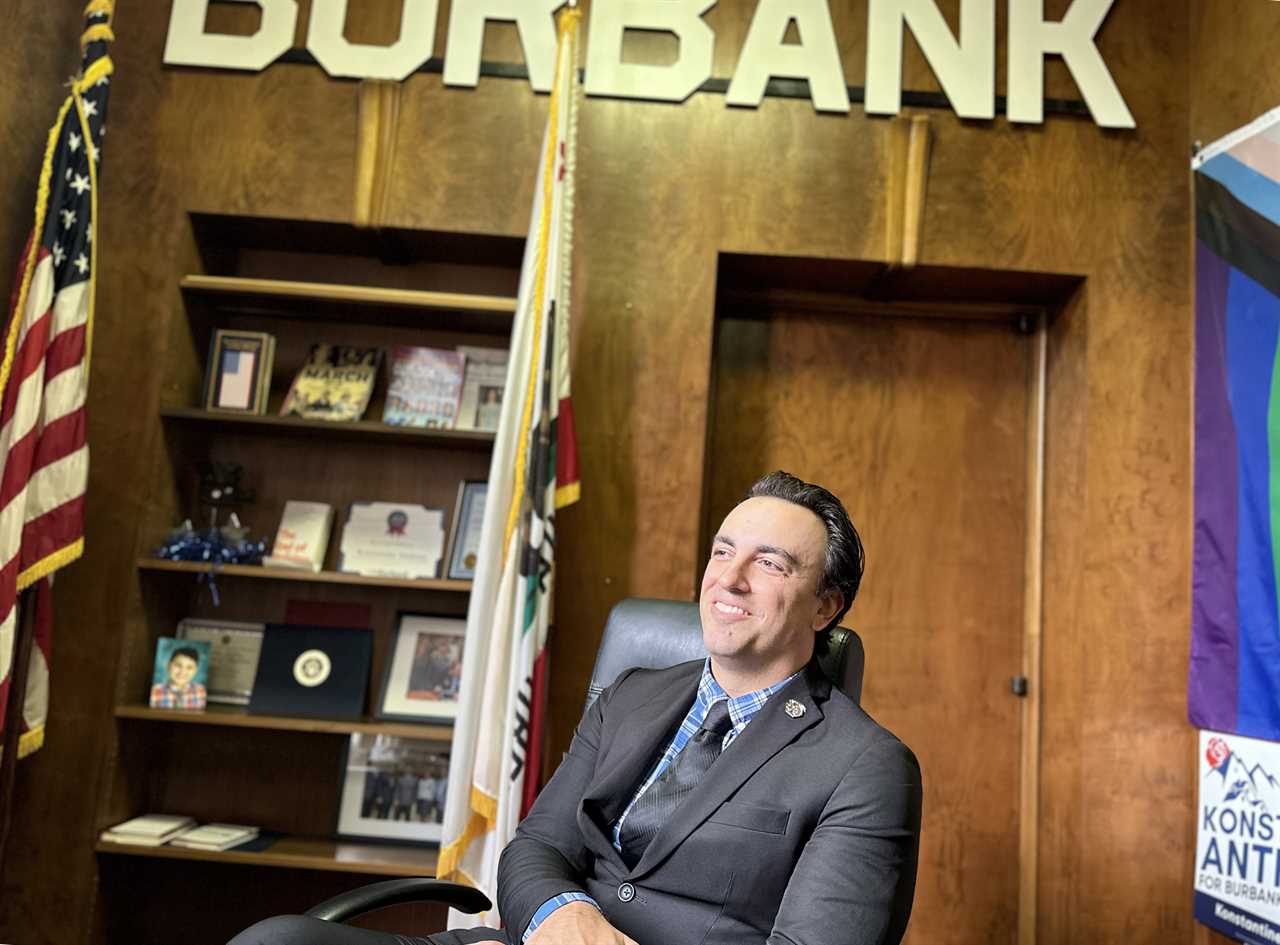
The problem for groups like Our Revolution and people like Lynn, who view California as a proving ground for the progressive movement, is that California voters — beyond requiring their statewide elected officials be Democrats — may not distinguish between those Democrats on narrower ideological lines.
One reason is that, for as completely as the Donald Trump era overhauled the Republican Party, the resistance to Trump from the left blurred some intraparty differences between Democrats. Schiff is known less as a moderate or a progressive than for his roles in Trump’s first impeachment and in the panel investigating the riot at the Capitol on Jan. 6, 2021. In some ways, said Geevarghese, “’progressive’ and ‘Democrat’ have gotten conflated, in part because the anti-Trump movement was galvanizing, and no matter which side of the Democratic divide you’re on, establishment versus progressive, we came together against the threat of Trump-ism.”
Schiff, said Konstantine Anthony, the mayor of Burbank, Schiff’s hometown, “was on television every night for weeks, months. He was seen as the anti-Trump.”
Anthony, a socialist who is far to the left of Schiff ideologically and actually supports the “defund the police” movement, is nevertheless endorsing him. Citing Schiff’s support for Medicare for All and his swearing off of corporate PAC donations, among other policies, he said he regrets that among that activist class, “we do not allow people to learn.”
Schiff, he said, had become more progressive as his district evolved, while “our memories have gotten longer, and I feel like it’s to our detriment. We haven’t evolved to the point where we can forgive people.”
But the broader electorate may be more willing to overlook things — if they even cared much to begin with.
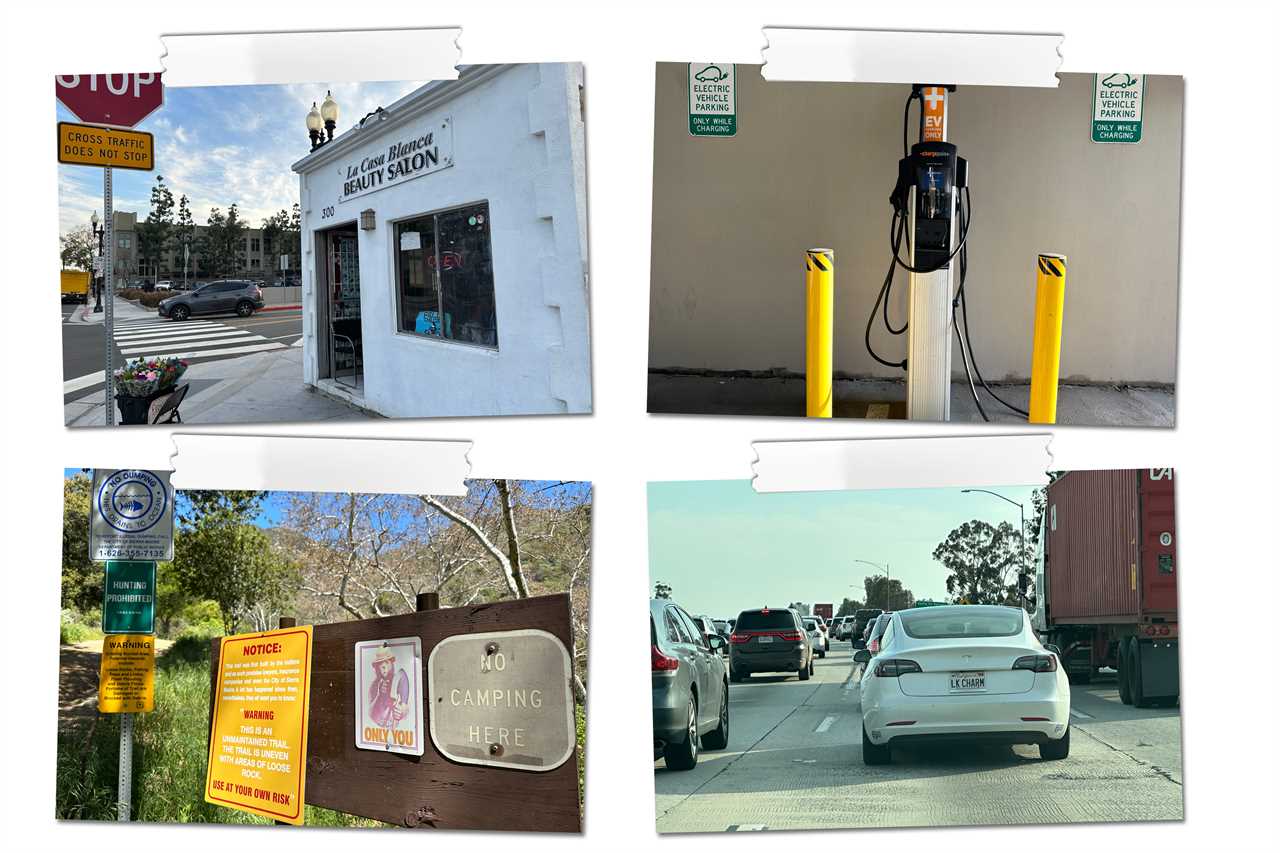
I asked Robert Reich, the video-making former labor secretary and Berkeley professor beloved by progressives, whether the term “progressive” had shifted meaning in the Trump era.
“My sense is that most voters are turned off by terms like ‘progressive’ or ‘liberal,’ just as they're turned off by ‘right-winger’ or ‘conservative’," Reich responded. “So much venom has filled social media and political commentary involving these terms —especially in the Trump era, when venom became acceptable if not actively encouraged — that politicians of all stripes are coming to realize they have to talk about specific things that people want or need, whether affordable child care and health care, or parental control over what's being taught in the schools.”
A Berkeley Institute of Governmental Studies poll released in February, backed up that take. The poll showed Schiff and Porter leading among Democrats and independent voters with 22 percent and 20 percent, respectively. Lee was lagging with 6 percent, while nearly 40 percent remain undecided.
Perhaps more tellingly, when asked what candidate attributes mattered to them, fewer than half of Democrats and independent voters — 45 percent — listed being a progressive as very important. That’s far more than the 23 percent who list being a moderate as very important. But both responses were nowhere close to the more than two-thirds of Democrats and independents who said it was important that a candidate have a “willingness to negotiate and work collaboratively with others to get things done.”
“Honestly, you could hardly get a piece of paper between Schiff and Porter in terms of ideology,” Garry South, a Democratic strategist who has worked on statewide campaigns in California, told me. “For either of those two candidates to try to make some huge ideological gap between them, I think, will be a futile exercise at the end of the day.”
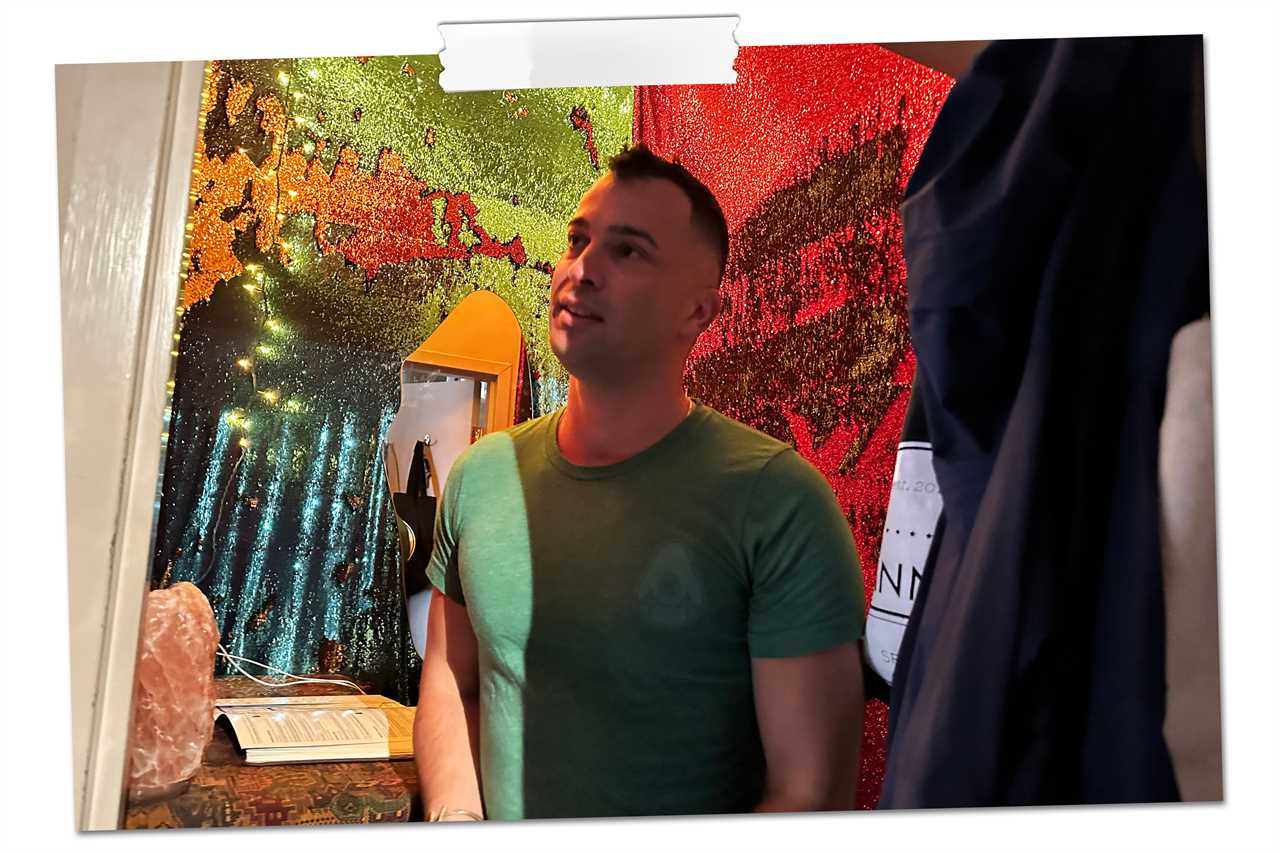
In San Francisco, Porter’s visit to Manny’s followed an earlier appearance by Schiff. Lee has been there before, too. The venue’s owner, Manny Yekutiel, a former Barack Obama and Hillary Clinton campaign staffer, identifies as a progressive and runs the place as something of a salon, hosting dozens of Democratic senators, governors and presidential candidates. We, spoke on a couch at the side of the room while disco music played before Porter and Swisher arrived. “In general,” he told me, “I find that they are a lot more similar than they are different.”
I asked him if he thought the Senate contenders were all progressive Democrats.
“I guess it depends what your definition of ‘progressive’ is,” Yekutiel replied. “I think if you define it as a Democrat that is trying to fight for progress in this country and is a lion for liberal values, then yes,” he replied.
You could go beyond that — to make a distinction based on what he called “Capital P progressive,” such as membership in a caucus, he said. But at this point, he added, “I think those distinctions are kind of silly, honestly.”
----------------------------------------
By: David Siders
Title: ‘The Label’s Actually Part of the Problem’
Sourced From: www.politico.com/news/magazine/2023/04/05/california-senate-race-progressives-00089446
Published Date: Wed, 05 Apr 2023 03:30:00 EST






